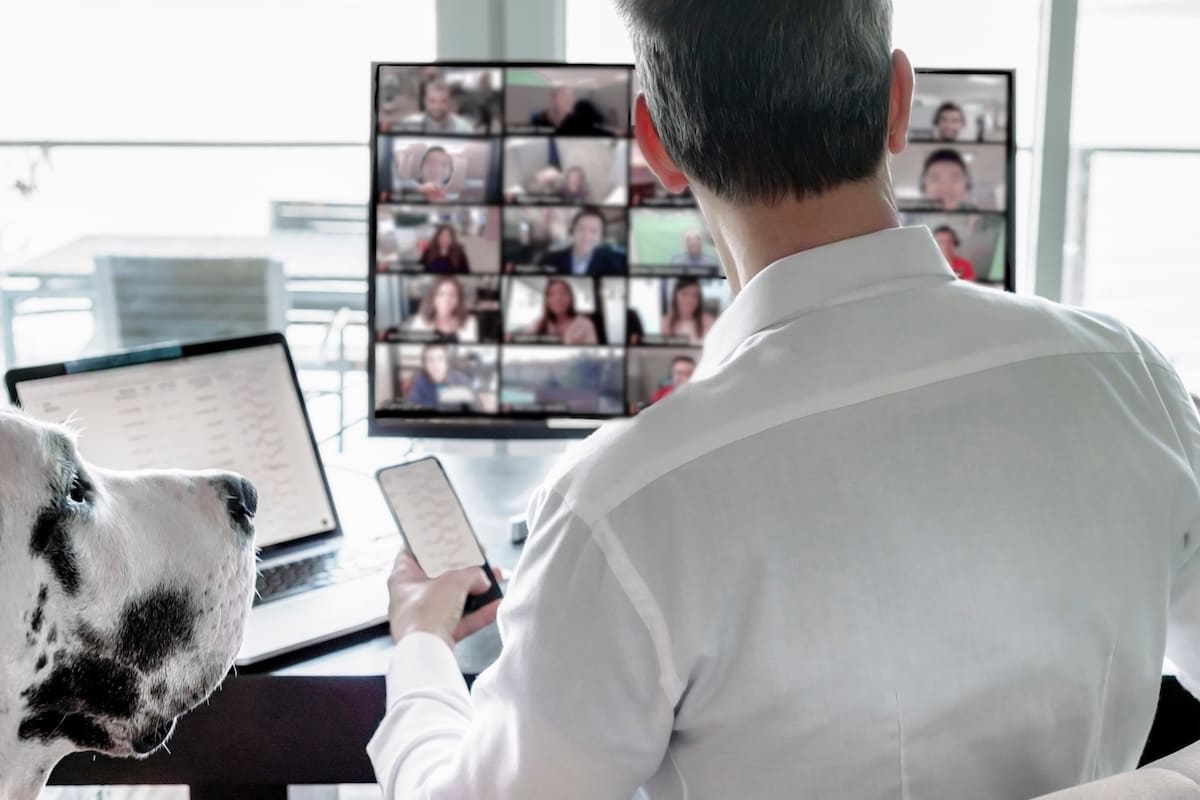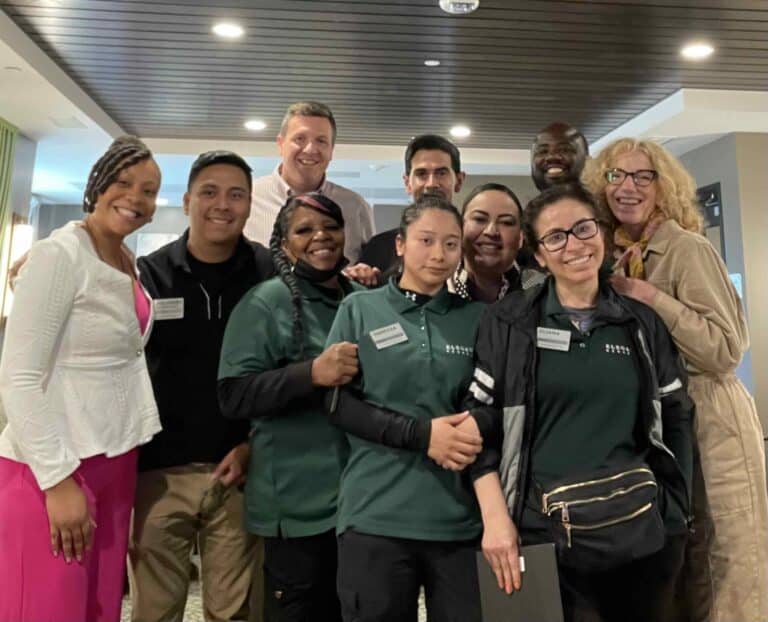Senior HR Leaders Share Their Strategies for How to Build A Strong Company Culture with a Remote Team
Employers and business leaders are looking for ways to engage and support their remote workforce during the transition to the ‘Next Normal’. With millions of employees working from home, and new stresses to manage, HR leaders are being asked for creative ways to engage employees, strengthen remote company culture and boost remote employee morale.
The Burnalong HR Leadership series hosted a round table discussion on building and sustaining a strong remote culture (check out the link if you want the full recording sent to you)
On the panel were:
-
- Pernille Spiers-Lopez, the former Global CHRO and President of IKEA North America
- Michelle Wright, Former CHRO of CareFirst BlueCross BlueShield
- Rodney Whitmore, Current CHRO of George Washington University
What follows is the discussion focusing on insights and strategies for how companies can create and sustain an engaging and successful internal company culture. It has been edited for readability.
What role do company values play in creating a strong and effective company culture?
Company values and company culture are integrally connected for organizations of all sizes. From Pernille, Michelle, and Rodney the keys included:
-
- Setting company values from the outset and communicating them to your team
- Tie your company’s goals and mission back to your purpose as an organization
- Be authentic in your approach and make sure employees feel heard and valued
Pernille Spiers-Lopez, the former Global CHRO and President of IKEA North America
If you don’t have really clear core values and a strong company culture, I would say – certainly it’s a start – to do just that. It’s critical, and I think it could be quite difficult to do in these times. I would start out again with having these conversations with people and out of that really start saying, “These are the five important things to our organization, and we’ve heard from you, and we’re going to start delivering on that. All of us.”
Start from the ground up. This is a time where ground up is important. Top-down can work for delivering information and all that. So if you don’t have a strong thriving culture, it’s certainly urgent to develop that. But again, it doesn’t happen from the top.
It really is from within the organization. And this is a great opportunity to certainly do that and get buy-in from everyone. And then it is the top leaders that have to live that every day and ‘walk the talk’ and show up with these values. And this is incredible, you know, powerful behaviors that everybody buys into.
It is the top leaders that have to live that every day and ‘walk the talk’ and show up with these values.
So I think today we are bringing our whole self to work. It is so important that our company values are actually reviewed based on these things because you can not have an inclusive, diverse organization if you are not allowing people to be their full selves at work. And that means other people have to be more open and accepting.
Former CHRO of CareFirst BlueCross BlueShield, Michelle Wright’
People will rally around purpose. Tie things back to that purpose. That’s then your North Star to drive a lot of these things.
People will rally around purpose. Tie things back to that purpose. That’s then your North Star to drive a lot of these things. This isn’t going to happen fast, but you can do some things. Don’t let the ‘perfect be the enemy of the good’, and don’t just think that we have to do this many off-sites and a million surveys and things like that. You can do a values exercise on Survey Monkey. Pull some things together if you don’t have them. And then pull those other components together.
I would say one thing about recognition right now, with people not having that much external daily interaction. They’re not getting that reinforcement on a continuous basis of the social interactions and the feel-good like ‘I did something good.’ So I think one great initiative is to think about these little ‘micro recognitions’.
Check out our webinar with mental health experts Dr. Jess Williams and Bianca Coleman for more tangible suggestions on supporting employee mental health.
I think with us working remotely – and this comes from whether it’s culture, whether it’s compliance, whether it’s social justice, all of these things – building a questioning culture, a culture where you say something, where we are trying to encourage people to speak, speak in the respectful way, obviously, but where we are asking people – making it almost an obligation – for people to question the way we’re doing things, question something that may have happened, question a micro-aggression they may have seen or witnessed, and ask ‘how do I handle it?’ All of those things. I think it’s really important because we don’t have as much face-to-face communication right now. So I think a questioning culture is something I’ve been thinking a lot about.
Rodney Whitmore, Current CHRO of George Washington University, wanted to add his thoughts on building strong remote company culture:
If I could add to what Michelle just said, in today’s world where people are really looking for authenticity, it may be to your advantage to go with a more stripped-down version of your values if you’ve not already figured out your values proposition. You know, Zoom-based focus groups and Survey Monkey may be perceived as more authentic than waiting until you can bring in an external group to do that kind of work.
I think people are looking for a more immediate response and a sense of urgency around getting at what really matters. So obviously there’s no time like the present if you’ve not already installed that kind of apparatus.
I would also say to really think about how you integrate innovation and breakthrough solutions in a way that’s sustainable. There’s a lot of creativity going on in our organizations right now. But how do you build a sustainable model around innovation and work through it?
What can HR Leaders do to develop and sustain a strong company culture?
HR leaders have never been more critical than they are today. With the global pandemic creating stress and uncertainty in organizations around the world, and companies shifting to remote work policies, internal organization and communication is vital. HR leaders are directly responsible for helping their employees navigate this crisis and are firmly in the driver’s seat.
The panelists gave the following advice for HR leaders from any organization:
-
- Mirror the company’s goals and overall strategy back to talent strategy at an org level
- Don’t be afraid to question or challenging existing processes that may not be working (and encourage employees to do the same)
- Lead with compassion and take an understanding approach with your employees new challenges with their remote lifestyles
1. Develop a Sense of Focus for Executives & Boards
Rodney Whitmore
One of the things that is critically important for H.R. executives is to really create a sense of focus, not only with the executive teams, but also with the boards to ensure that there is a straight line between this whole notion of wellness and holistic living in your longer term succession plan.
The organization that takes a long term view, but then also ties it directly into the environment that’s being created to support and sustain the talent strategy will win in the long term.
I think the statistics bear it out. If you look at the year over year shareholder value that’s created in your Fortune 500 companies, those organizations that invest strategically in people year over year, independent of short term economic cycles do far better than those that do not. And typically, that is an extension of a decision settled long ago, that human capital strategy is the real lever in building and sustaining an organization.
2. Develop a Questioning Remote Work Culture
Michelle Wright
The other one that I would say goes back to the culture piece. I think, again, with us working remotely and this comes from whether it’s culture, whether it’s compliance, whether it’s social justice, all of these things, a questioning culture, a culture where you say something where we are trying to encourage people to speak, speak in the respectful way, obviously, but where we are asking people – making it almost an obligation – for people to question the way we’re doing things.
Question something that may have happened, question a micro-aggression they may have seen or witnessed, and how do I handle it? All of those things.
I think it’s really important because we don’t have as much face-to-face communication right now. So I think a questioning culture is something I’ve been thinking a lot about.
3. Lead with Compassion and Listen to Your Employees
Pernille Spiers-Lopez
It is a new era that we are in and are entering… there are a lot of things that you cannot outsource. So if you’re stuck in the administration and a lot of things that actually are very tactical, things that could be outsourced, I would say free up time to really be part of the strategic agenda.
I think diversity, life balance, dealing with change has been issues and topics for H.R. for a long time. I think the big shift is that everybody sees now this is not something that needs to be on the side. It actually needs to be integrated into everything we do. And just saying that I think leaders really and most I think one of the most important priorities for H.R. is to really make sure that we have leaders that are equipped to be leading both from the head but also the heart.
We need compassion. We need people to actually listen and hear what’s happening in the world. And truly in the homes and the lives of our employees. This is a very stressful time and compassion, well, make that a big priority for every one of us to truly explore and live and pay attention to.
Looking for the full webinar on Building a Strong Remote Company Culture?
Want to listen to the recorded webinar with additional insights around communication methods, technology, and strategies for HR Leaders to build a strong remote company culture? Watch the full webinar here.







